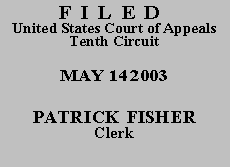

| UNITED STATES OF AMERICA,
Plaintiff-Appellee, v. MARTIN VALTIERRA-ROJAS, Defendant-Appellant. |
|
Defendant Martin Valtierra-Rojas pleaded guilty to one count of illegal reentry by an alien deported after a conviction of an aggravated felony in violation of 8 U.S.C. § 1326(a) and (b)(2). The district court concluded a sixteen-level enhancement was appropriate based on defendant's two prior convictions of aggravated assault, see USSG § 2L1.2(b)(1)(A)(ii), and sentenced him to sixty-three months of imprisonment.
On appeal, defendant argues that the district court erred by increasing his base offense level based on elements, i.e., prior convictions of aggravated assault, that were not charged in the superseding indictment and not proven beyond a reasonable doubt. He asserts that he pleaded guilty to illegal reentry after a conviction of an aggravated felony, and thus, the district court should have enhanced his base offense level by only eight, rather than sixteen, pursuant to USSG § 2L1.2(b)(1)(C).
Defendant bases his argument on Apprendi v. New Jersey, 530 U.S. 466, 490 (2000), in which the Court held that facts used to enhance the penalty for a crime beyond the statutory maximum must be submitted to a jury and proven beyond a reasonable doubt. Apprendi, however, acknowledged that a narrow exception to this general rule, established in Almendarez-Torres v. United States, 523 U.S. 224 (1998), applies when the fact used to enhance the sentence is a prior conviction. Apprendi, 530 U.S. at 488-90. Defendant concedes that relief from this court is foreclosed by Almendarez-Torres and this court's decision in United States v. Martinez-Villalva, 232 F.3d 1329, 1332 (10th Cir. 2000), but seeks to preserve his argument for review by the Supreme Court in anticipation that Almendarez-Torres will be overruled.
While we acknowledge defendant's effort, we cannot grant him relief. We are bound by Almendarez-Torres and Martinez-Villalva.(1) See Agostini v. Felton, 521 U.S. 203, 237 (1997) ("[I]f a precedent of this Court has direct application in a case, yet appears to rest on reasons rejected in some other line of decisions, the Court of Appeals should follow the case which directly controls, leaving to this Court the prerogative of overruling its own decisions.") (quotation omitted); United States v. Hargus, 128 F.3d 1358, 1364 (10th Cir. 1997) (one panel of this court cannot overrule a decision of another panel).
The judgment of the United States District Court for the District of Kansas is AFFIRMED.
Entered for the Court
Chief Judge
*. This order and judgment is not binding precedent, except under the doctrines of law of the case, res judicata, and collateral estoppel. The court generally disfavors the citation of orders and judgments; nevertheless, an order and judgment may be cited under the terms and conditions of 10th Cir. R. 36.3.
1. Even if Almendarez-Torres were overruled, defendant still would have no claim based on Apprendi. In Apprendi, the Court held that facts used to enhance the penalty for a crime beyond the statutory maximum must be submitted to a jury and proven beyond a reasonable doubt. Apprendi, 530 U.S. at 490. In the instant case, defendant pleaded guilty to one count of illegal reentry by an alien deported after a conviction of an aggravated felony in violation of 8 U.S.C. § 1326(a) and (b)(2), exposing him to a maximum prison term of twenty years. The district court sentenced defendant to sixty-three months of imprisonment, which is well within the statutory maximum.